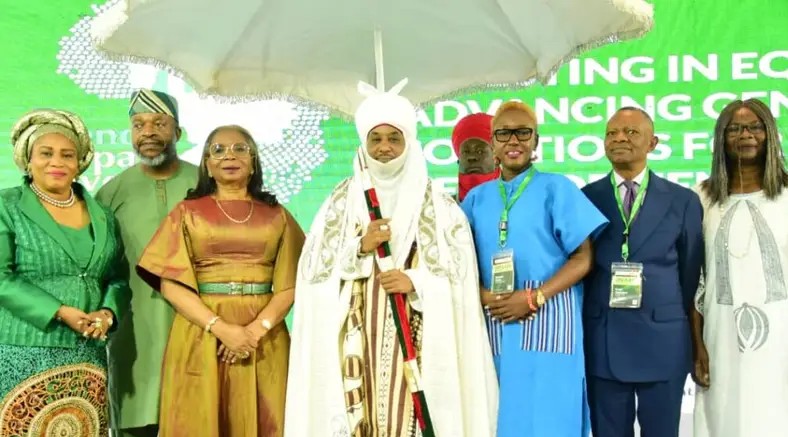Muhammadu Sanusi II, the 16th Emir of Kano and former Governor of the Central Bank of Nigeria, has called for reforms to address the barriers hindering Nigerian women’s participation in politics, business, and leadership. Speaking at the 3rd Gender Impact Investment Summit in Lagos, Sanusi emphasized that advancing gender equity is a matter of common sense, rather than an act of charity, as it is essential for Nigeria’s growth.
Sanusi pointed out that the country’s constitution requires a minister from every state, but questioned why diversity is only considered in terms of geography, rather than gender. He suggested that reserving senatorial seats for female candidates on a rotational basis could guarantee representation, citing the current imbalance of only four female senators out of 109.
During his tenure at the Central Bank of Nigeria, Sanusi implemented policies to promote women’s leadership, resulting in significant contributions to the bank’s achievements. He noted that women later headed critical departments, and their leadership influenced broader reforms in the banking sector. This led to the 2012 “Year of Women in Banking,” which set gender targets in recruitment and leadership, ultimately resulting in nine Nigerian banks being led by female chief executives.
Sanusi also urged regulators, such as the Securities and Exchange Commission and the National Insurance Commission, to mandate gender-disaggregated reporting to improve accountability in lending to women-led enterprises. He emphasized that solutions to women’s economic exclusion must be tailored to local contexts, as cultural barriers vary across different regions.
The Minister of Innovation, Science and Technology, represented by Rachel Ede, pledged the Federal Government’s commitment to fostering women-inclusive growth under the Renewed Hope Agenda. The Chair of the Impact Investors Foundation, Frank Aigbogun, commended the launch of the 10-year Gender Equity and Social Inclusion roadmap, which aims to mobilize $8 billion in gender-inclusive capital to bridge financing gaps for women, youth, and Persons with Disabilities.
The summit’s theme, “Investing in Equity: Advancing Gender-Led Solutions for Inclusive Development,” highlights the importance of addressing gender disparities in Nigeria. The implementation of the Gender Equity and Social Inclusion roadmap is expected to have a significant impact on the country’s growth and development, as it seeks to promote women’s participation in various sectors and address the existing barriers to their economic inclusion.
